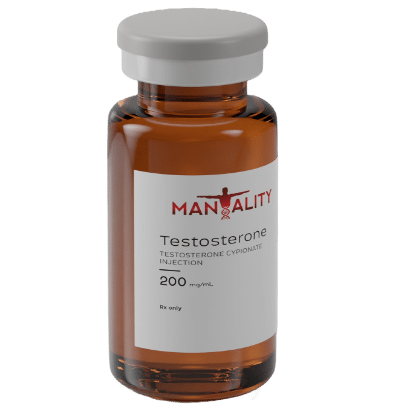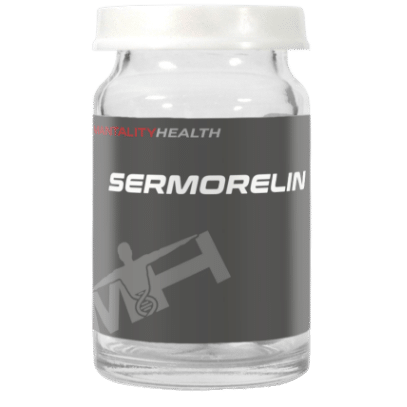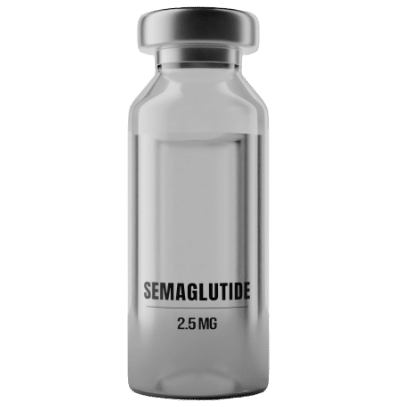Do you find that you’re particularly exhausted at the end of your workdays?
Do you find yourself straining to remember the simplest things? Are you moody all the time?
Mood swings in men are one of the many symptoms of low testosterone.
Plus, there’s a strong link between low testosterone and chronic diseases like arthritis and low blood pressure.
And even though men are often shy to discuss the possibility of low testosterone, at least 5% of men over 40 suffer from low testosterone.
Because so many men remain undiagnosed, that number could potentially be much greater.
Low testosterone can affect you physically and mentally. If you’ve fallen victim to the symptoms of low testosterone, it’s essential to learn how to deal with them.
Have you lost your edge and want to get back to where you used to be?
Keep reading to learn more about the symptoms of low testosterone and how testosterone replacement therapy can help!
What Is Testosterone?
Testosterone is a hormone. It’s found in women, men, and certain animals. The testicles in men are the primary makers of testosterone.
For women, their ovaries make testosterone, but in significantly lower amounts.
During puberty, the production of testosterone increases significantly. After 30 years of age, it begins to dip down.
Testosterone is commonly associated with sex drive. Plus, it plays an essential role in sperm production.
It affects the way men store fat in their bodies. It also affects things like red blood cell production, muscle mass, and bone mass.
As men age, the percentage of those affected by low testosterone increases exponentially. For example, over half of the men over 80 years of age are afflicted by low testosterone levels.
A man’s testosterone levels can notably affect his mood, amongst many other aspects of his life.
What Are the Physical Symptoms of Low Testosterone?
Low levels of testosterone are often referred to as “low T levels.” These low T levels can produce a variety of physical symptoms in men of all ages.
Hair Loss
Amongst its long list of duties, testosterone also plays a role in hair production.
Even though balding is a natural part of aging for most men, men with low T can also experience a loss of body and facial hair.
Loss of Muscle Mass
Even though testosterone doesn’t necessarily affect muscle strength or function, it can affect muscle mass.
If you’ve noticed a decrease in your muscle mass, it could be an indication of low T.
Decreased Bone Mass
Osteoporosis is more commonly associated with women. It’s the loss or thinning of bone mass.
Men with low T can experience bone loss as well because, in the right amounts, testosterone helps to strengthen and produce bone.
If you have low T, you could be more susceptible to bone fractures.
Increased Body Fat
In conjunction with a decrease in bone mass, men with low T levels may also notice an increase in body fat.
Sometimes they even develop gynecomastia, which is enlarged breast tissue. It occurs when there’s an imbalance (in men) between estrogen and testosterone.
Smaller Testicle Size and Lower Sperm Count
A man’s body requires testosterone to develop the testicles and the penis. Low T levels can easily contribute to a smaller penis or testicle size.
As testosterone also plays a role in semen production, men with low T levels will often notice a decrease in their semen’s volume.
Low Blood Counts
Men with low T levels have an increased risk of anemia.
The symptoms of anemia can range from leg cramping to trouble sleeping, to dizziness and an abnormally fast heart rate.
What Are Additional Symptoms of Low Testosterone?
Low testosterone effects aren’t just physical. There are many other ways in which low T levels can have detrimental effects on the lives of men.
Low Sex Drive and Difficulty Getting an Erection
Testosterone plays an important role in a man’s libido. A lot of men undergo a decline in their sex drive as they age. This is normal.
However, low T levels can cause a man to experience a much more severe drop in their sex drive.
Testosterone helps men achieve and maintain erections. It does so by stimulating receptors in the brain to produce nitric oxide.
Nitric oxide is a molecule. That molecule helps to trigger a series of chemical reactions, each of which is pertinent in the occurrence of an erection.
When T levels are too low, a man could have spontaneous erections or have trouble achieving one at all.
A Decline in Memory
It’s no secret that cognitive functions decline with age, and so do T levels.
Doctors and scientists are studying the correlation between the 2.
If you’ve noticed a decline in your ability to pull from your memory, you might be suffering from low T levels.
Fatigue and Mood Changes
2 of the most common symptoms reported by men with low T levels are a decrease in energy levels and extreme fatigue.
If you’re tired all the time despite lots of sleep, or if you find that you’ve completely lost your motivation to exercise or do physical activities with your kids, you could be suffering from low T levels.
Changes in mood are one of the most significant signs of low T levels. Often it’s a spouse or a loved one who notices before an individual has time to realize they’ve changed.
Men with low T levels are more likely to go up against issues such as a lack of focus, irritability, and depression.
Low testosterone levels can severely impact your mental state.
Why Do Some Men Have Lower Testosterone Levels?
Low testosterone levels affect 4 to 5 million men in the United States. And as men become more comfortable recognizing and discussing their symptoms, the number continues to grow.
After age 30, testosterone begins to decrease. Every individual is different. For some men, the decrease happens slowly and minimally, whereas, for others, the decrease can be substantial and drastic.
It isn’t just age that can affect T levels. Babies and young children can suffer from the same deficiency.
Underactive testes can easily cause PRIMARY hypogonadism. When they don’t make sufficient levels of testosterone for optimal health and growth, they won’t produce enough hormones.
These traits can be inherited or acquired by illness or accident.
For example, when a baby’s testicles fail to descend from their abdomen before birth, the result can be low T levels.
Too much iron in the blood can cause a testicular failure, which also leads to low T levels. Plus, some men are born with 3 sex chromosomes, which is another factor.
Chemotherapy, radiation, a mumps infection, and physical injury to BOTH testicles are additional circumstances that result in low testosterone levels.
SECONDARY hypogonadism is caused by damage to the hypothalamus or the pituitary gland. Both of these parts of the brain control testes’ hormone production.
Secondary hypogonadism can also be inherited or acquired.
Some of the ways in which it can be inherited are:
- HIV/AIDS
- Inflammatory diseases
- Kallmann syndrome
- Pituitary disorders
Some of the acquired circumstances that can result in secondary hypogonadism are:
- Obesity
- Normal aging
- Concurrent illness
- Medications
Even the stress from a severe illness or surgery can cause the reproductive system to shut down, resulting in low testosterone levels.
How Do You Know if Your Levels Are Low?
If you find yourself bogged down by any of the aforementioned symptoms, it’s important to remember that you’re not alone.
Many men of all different ages suffer from low testosterone levels and find great relief when they embrace their condition and opt to get treatment.
Plus, it’s not difficult to diagnose.
Even though symptoms can be subtle, low testosterone levels are easy to determine.
The normal range of testosterone is between 300 and 1,000 nanograms per deciliter (ng/dL) for adult men.
The blood test is called a serum testosterone test. It can easily determine what your circulating levels are.
It’s important to remember that there is a wide range of healthy levels circulating through the bloodstream.
If your levels are under 300, your doctor will likely want to perform additional tests and ask questions to determine the cause of your low T levels.
Why Use Testosterone Replacement Therapy?
Unfortunately, many men with low T levels accept their symptoms as an integral part of aging.
And it’s true: aging does result in lower T levels. But for some men, it happens faster than others. And it isn’t always as a result of age.
Testosterone Replacement Therapy (TRT) is an amazing way to get your life back and reclaim your energy, your emotional state, and your manhood.
Many medical providers don’t offer TRT because it takes time, care, and maintenance. Plus, many medical professionals don’t have the necessary training to administer testosterone and monitor patients to make sure side effects stay at a minimum.
There are many options for TRT, but it’s essential to only get treatment from certified physicians who use FDA approved treatments. Otherwise, you could end up much worse than you were prior to treatments.
A certified professional will work with you to find the right dose, figure out what works best with your body, minimize the side effects, and get your life back on track.
There’s no reason to “age” before you have to. And there’s no reason for a middle-aged man to be bogged down by emotional stress, fatigue, and a decreased libido.
Our goal is to help you get your life back, using only FDA-approved treatments, with guidance and maintenance by a professional board-certified doctor.
How Long Does It Take to Work?
Every client is different, and finding the right balance for every patient is a different journey.
It’s vital to take the time to care for and understand each patient, which is why we always begin with a thorough consultation to make sure that TRT is the right choice.
It’s not for everyone, and if we determine that it’s not the right course of action for you, we’ll go a different route to get to the bottom of what ails you.
Many clients notice a difference within the first month, but significant changes typically occur within 4 to 6-week intervals.
The most optimal way to achieve results is by supplementing your treatment with a healthy diet, exercise, and sufficient sleep.
Are There Side Effects?
There are side effects with almost every medical treatment. However, we take great care to monitor your treatment closely and adjust therapy accordingly.
Thickening of the blood can occur, but we monitor this closely and avoid it by donating blood when needed.
Even though many people claim that TRT affects prostate health, there are NO proven links to date.
With each patient, we take the time to discuss possible side effects and how we’ll address them if needed.
Mood Swings in Men Can Change with TRT
Mood swings in men are no fun for the men themselves, or the loved ones and people that surround them.
Unfortunately, low testosterone levels don’t just affect the mental state of a man. They can plague a man’s energy levels, ability to sleep, sex drive, amongst many other things.
Even though testosterone levels decrease with age, they don’t have to.
If you’re falling behind at work, have lost your desire to work out, or feeling irritable and anxious, the chances are that your testosterone is low.
And why not find out? All it takes is a consultation with a certified physician and a simple blood test to determine if your levels are low.
Do you want to find out if we can help? Contact us!
You can tell us what ails you, find out if your insurance is verified, and make an appointment, all without picking up the phone!











